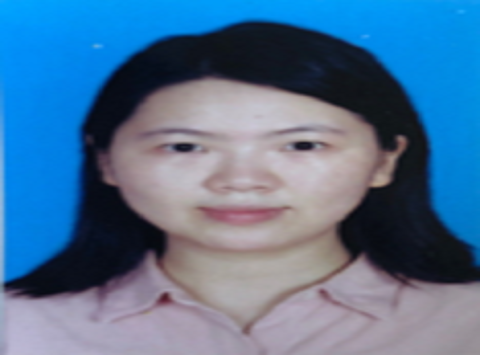Listen to the Event Speakers
Chun Li
College of Food Sciences, Northeast Agricultural University - China

Chun Li
College of Food Sciences, Northeast Agricultural University - ChinaBiography:
Chun Li, Professor and doctoral supervisor, is a visiting scholar at Utah State University and North Dakota State University. He takes many roles such as the director of dairy Processing Technology Research Center of Heilongjiang Green Food Science Research Institute, the executive director of National Dairy Engineering Technology Research Center, the director/major leader of Dairy Engineering Department of Food College of Northeast Agricultural University, and the leader of dairy Microbiology team of Key Laboratory of Dairy Science of Ministry of Education.
Michel Aliani
Professor, University of Manitoba - Canada

Michel Aliani
Professor, University of Manitoba - CanadaBiography:
Michel Aliani is a Professor at the Department of Human Nutritional Sciences at the University of Manitoba and a member of the Canadian Centre for Agri-Food Research in Health and Medicine in Winnipeg, Manitoba.
Asmiro Abeje Fikadu
Department of Agricultural Economics, Debre Tabor University - Ethiopia

Asmiro Abeje Fikadu
Department of Agricultural Economics, Debre Tabor University - EthiopiaBiography:
Asmiro Abeje Fikadu (MSc) is a lecturer and researcher in the department of Agricultural Economics at Aksum University. Asmiro obtained his bachelor and master degrees in Mekelle University (Ethiopia) and Bonn University (Germany), respectively. He carried out various research activities in the areas of agricultural technology adoption and dis-adoption analysis, value chain analysis, farm efficiency analysis and related socioeconomic studies; thus, he has published different papers in peer-reviewed journals and reputable international conference proceedings.
Fatma Ali
Tianjin University of Science and Technology - China

Fatma Ali
Tianjin University of Science and Technology - ChinaAbstract:
Casein micelles dissociation is considered as an effective step in the isolating of milk fat globule membrane (MFGM). The aim of my talk is to report on the prospective effect of pasteurization on the microbial transglutaminase (mTGase) as an enzyme-protein cross linking in view of milk fat globule membrane (MFGM) isolation. I offer statistical methodologies for estimation of compositional analysis and microstructure properties of MFGM and milk proteins. Microbial transglutaminase enriched by initial pasteurization enhanced the compositional analysis of buttermilk samples and their isolates. In turn, mTGase might reduce MFGM-milk proteins interaction, but was unable to improve it as expected. Pasteurization induced casein crosslinking compared to non-pasteurized sample. MTGase treatment without pretreatment induced the covalent bonds between casein micelles, whether on the surface or between the molecules. Therefore, more casein micelles cross-linked and less micelle liberated into the serum with less aggregation. The cross-linking of whey proteins could be improved by heating as well, which led to an unfolding of the whey proteins, and made them more accessibility for mTGase. The results of our study demonstrated that the pretreatment might improved mTGase-casein cross linking, but in turn affected MFGM obtained proportion adversely. Microstructure properties were investigated for the three layers after ultracentrifugation and showed absorption of non-MFGM proteins onto MFGM surface of all samples. An increase of κ-casein in pasteurized sample was an indicator of a possible κ-casein association with MFGM and/or interaction with whey proteins (β-Lactoglobulin) based upon heating. However, pasteurization might induce more cross-linking of milk proteins, thermal treatment reduced the mTGase ability to show remarkable impact on MFGM and non-MFGM proteins interaction.
Biography:
Dr. Fatma Ali received her Ph.D. from Tianjin University of Science and Technology, Tianjin, China. Since 2019 she works at Department of Biological Chemical Engineering, College of Chemical Engineering and Materials Science, Tianjin University of Science and Technology, Tianjin, China. She is the first author of more than 10 peer-reviewed papers in Food Engineering (https://www.researchgate.net/profile/Fatma-Ali-43). She collaborates with Food Science and Technology researchers on the regular basis.. Her area of interest is non-thermal techniques, milk proteins, plant based food, and food chemistry,. She has published various papers in peer reviewed journals. (Trends in Food Science and Technology, Carbohydrate polymers, Food Bioscience, International Journal of Dairy Technology, Journal of Food Process Engineering).
Carlos A. Uthurry Weinberger
Associate Professor, Universidad Nacional de Río Negro - Argentina

Carlos A. Uthurry Weinberger
Associate Professor, Universidad Nacional de Río Negro - ArgentinaAbstract:
Argentine cider, a typical beverage from northern Patagonia, has been undervalued by consumers in recent years because its quality had decreased due to the use of defective apples and the lack of strict controls during cider making. Cider consumption is significant during the Christmas holydays; however, wine, beer and champagne are the most consumed alcoholic beverages throughout the year.
Large - scale cider makers, to increase their share in the local market of alcoholic beverages, started to seek improvement strategies to get better quality ciders. Entrepreneurs new to the sector were boosted by this phenomenon searching new artisanal ciders with fruity flavor and less sweetened than industrial ciders.
Argentina mostly produces carbonated cider – cider added with exogenous carbon dioxide- obtained from the addition of either sucrose, high fructose corn syrup or concentrated apple juice, citric acid, carbon dioxide, sulfite, and potassium sorbate to the base cider – cider resulting from the alcoholic fermentation of apple juice – before bottling.
Some years ago, we started the research of this beverage at Universidad Nacional de Río Negro, Patagonia, to make a survey of ciders and characterize them chemically and sensorially. We formed the first sensory panel of trained evaluators for cider in the country. The results achieved in two projects were welcome by large- and small-scale cider makers.
The goal of my speech is to give an approach of Argentine cider making, the most important results of our research, and the present work concerning nontraditional apple varieties and yeast strains with potential for cider making.
Biography:
Dr. Carlos A. Uthurry received his Ph.D. from Universidad Politécnica de Madrid, Spain. Since 2007 he worked at the Department of Engineering, Science and Food Technology (Universidad Politécnica de Madrid), the Industrial Fermentations Institute (Consejo Superior de Investigaciones Científicas, CSIC, Madrid), and Escuela de Producción, Tecnología y Medio Ambiente (Universidad Nacional de Río Negro, Argentina). He collaborates with food and food microbiology researchers on a regular basis. He is associate professor at Universidad Nacional de Río Negro. His area of interest is food chemistry, food analysis and sensory evaluation. He has published various papers in peer reviewed journals.
Koel Mukherjee
Andaman & Nicobar Regional Centre - India

Koel Mukherjee
Andaman & Nicobar Regional Centre - IndiaAbstract:
India is a homeland to a huge number of indigenous people with their varied cultural, ecological, and linguistic diversity. In this talk I am going to discuss about the nutritional conditions and associated factors of one such community living in the rural areas of West Bengal, namely, Sabar. I confined my discussion on the adult Sabar males (18-60 years) particularly living in Purulia district of the state. A total of 400 sample was considered in this cross-sectional study.
It was a well-established fact that health is multifactorial, so data was collected not only about their nutritional condition but other factors like socio-demographic information, food habits and dietary practice, regular physical activities, etc. To access the nutritional status, required anthropometric measurements were taken using different scientific instruments following standard protocol. Information on their daily dietary intake was collected following the 24-h dietary recall method as used by National Institute of Nutrition (Hydrabad, India) in their national level surveys. The intake of different macro and micro nutrients were computed and compared with the Recommended Dietary Allowances (RDA) for Indians as prepared by the Indian Council of Medical Research (ICMR) Expert Committee. Different internationally accepted indices were used to determine nutritional status, somatotype, body composition, blood pressure levels, etc. To find out variation, correlation and association among studied variables different statistical analysis were performed.
Results revealed a higher prevalence of undernutrition and hypertension despite balanced nutrients intake. This paradox creates scope for further research among other communities living in similar habitats.
Biography:
Dr. Koel Mukherjee received her Ph.D. from University of Calcutta, India in 2016. Since 2007 she works at the Department of Law, University of Calcutta; National Nutrition Monitoring Bureau (NNMB), West Bengal Unit, Indian Council of Medical Research; Department of Anthropology, Haldia Government College, and Anthropological Survey of India, Ministry of Culture, Government of India. She presented papers in more than 30 national and international conferences and published around 45 research articles in peer reviewed journals and edited volumes in national and international repute. She is the editorial board member of two international journals and acts as a reviewer for different journals regularly. Her area of interest is public health, nutritional anthropometry, population variation, tribal studies, ethnography, etc.
Perugu Shyam
Assistant Professor, Department of Biotechnology, National Institute of Technology, Warangal (NITW) - India

Perugu Shyam
Assistant Professor, Department of Biotechnology, National Institute of Technology, Warangal (NITW) - IndiaPani Prasad Kurcheti
Principal Scientist, ICAR-Central Institute of Fisheries Education - India

Pani Prasad Kurcheti
Principal Scientist, ICAR-Central Institute of Fisheries Education - IndiaAbstract:
Antimicrobial resistance (AMR) is recognized as one of the complex problems and bacteria have acquired resistance to a wide range of antimicrobials used due to its abuse in growth promotion, treatment of diseases etc. Identifying the alternatives and bringing out a comprehensive alternatives to antibiotics is the need of the hour to further reduce the impacts. Antibiotics are to be employed only when they are utmost needed (antibiotic prudency) for treatment of diseases. Strong commitment from all the stakeholders, researchers, and the policy makers are essential for limiting the rapid spread as well as emergence of new strains which are resistant to available antibiotics. Antibiotic prudency could be a nebulous concept that is difficult to define when the health of the individual, not the population, is of immediate importance. Nonetheless, central to executing antibiotic prudency is the availability of efficacious alternatives to antibiotics. Numerous alternatives to antibiotics exist for treating specific diseases, including bacteriophage therapy, predatory bacteria, bacteriocins, and competitive exclusion of pathogens. Novel studies are focussed on compounds with antimicrobial activity with antimicrobial properties of natural or synthetic compounds and development of nanoparticle-based agents. Bacteriophages have been used for therapy in some parts of the world. The new arena has been making the antibodies as therapeutic agents in which the specificity of antibodies, and the inability of bacteria to develop resistance against them, make them attractive, albeit expensive, alternative therapeutic agents. Antimicrobial peptides have long been considered as potential replacements for antibiotics but with limited success. Synthetic peptides and synthetic membrane-active agents might cause a shift. For the purpose of stimulation or microbial enhancement, probiotics and faecal transplant therapy can be employed. The use of oligonucleotides for silencing resistance genes and re-sensitizing resistant bacteria to antibiotics are limited to in vitro experiments and haven’t progressed to clinical evaluation. Several alternatives already exist in nature and are being researched on. Still, the challenge is to implement them in clinical use. Advancements within biotechnology, genetic engineering, and synthetic chemistry have opened up new avenues towards the search for therapies that can substitute antibiotics. Whilst the use of bacteriophages and antibodies has been partly implemented, other promising strategies, such as probiotics, lysins, and antimicrobial peptides, are in various stages of development.
Biography:
Dr. K. Pani Prasad, Principal Scientist, Central Institute of Fisheries Education, Mumbai, India is a result oriented with 28 years of experience as a Professor, researcher, scientist, extension and administration worker in areas of aquatic animal health especially in development and use of disease diagnostics and control. The core competence helped me in development of different immunodiagnostic kits for rapid and sensitive diagnosis of fish and shrimp diseases. Worked as National Consultant for an FAO, Rome and Dept. of Fisheries, Government of Andhra Pradesh project. The quality control at shrimp hatcheries and labs was the main aim of the work. More than 130 research publications in peer reviewed national and international repute. Research guidance: 11 Ph.D and 60 Masters’ in Fisheries Science in different aspects of health management. Conducted 22 training programmes in different aspects of Aquatic animal health for stakeholders, farmers, teachers, trainers and students.
Jarinah Mohd Ali
Senior Lecturer, Universiti Kebangsaan Malaysia - Malaysia

Jarinah Mohd Ali
Senior Lecturer, Universiti Kebangsaan Malaysia - MalaysiaAbstract:
Food preservatives are often added to the canned and processed foods to ensure that these products can last longer, and it also helps to increase the quality, taste, and texture of the foods. However, excessive usage of food preservatives in the food can lead to various diseases and health issues such as palpitations, asthma, allergic, headaches and cancer. Therefore, food preservatives detection in the food samples is essential for the safety of the consumers and to ensure that the amounts of preservatives added inside the canned food, or any food products meets the requirement of the food acts set by the government. This study Proposed a fuzzy logic to determine the amount of food preservatives in the canned food for five categories based on Food Acts 1983 and Food Regulations 1985 in Malaysia using MATLAB 2021a. A total of 90 fuzzy rules was developed to obtain the output value. About 50 random values, 50 data from the journals and 10 lab analysis results for the industrial sample was used to test the developed algorithms and determine the safety of the food products. The industrial sample, which was used are chicken curry with potatoes, satay sauce, anchovies’ sauce, sardine spread and sardine in tomato sauce to test the developed algorithm according to their categories. Besides, a graphical user interface (GUI) was developed based on the fuzzy logic framework. It will not only able to identify the safety of the food products but also can identify all types of foods which falls under the five different categories based on the food acts. In conclusion, the safety of the canned food products and food categories can be identified in a quick, cheap, and easy way by using the proposed fuzzy framework and GUI.
Biography:
Dr. Jarinah Mohd Ali is a senior lecturer and Master of Environmental Engineering (ODL) program coordinator in the Department of Chemical and Process Engineering, Faculty of Engineering and Built Environment, Universiti Kebangsaan Malaysia (UKM). She received her BEng. (hons) in Chemical Engineering from Universiti Teknologi MARA (UiTM) in 2007, MSc. (hons) in Advanced Process Control from University Technology of PETRONAS (UTP) in 2011 and subsequently received a Ph.D from the University of Malaya (UM) in 2017 under the same field. Her research interest are on estimation techniques, process control and Artificial Intelligence applied in food, agriculture and chemical process systems mainly focusing on fuzzy logic and neural network. She has published several papers in peer reviewed journals.
Anis Shobirin Meor Hussin
Associate Professor, Universiti Putra Malaysia - Malaysia
Anis Shobirin Meor Hussin
Associate Professor, Universiti Putra Malaysia - MalaysiaRoji Waghmare
Assistant Professor, College of Food Technology, Panjabrao Deshmukh Krishi Vidyapeeth - India

Roji Waghmare
Assistant Professor, College of Food Technology, Panjabrao Deshmukh Krishi Vidyapeeth - IndiaBiography:
Dr. Roji Waghmare is an academician having doctorate degree from Institute of Chemical Technology (ICT), Matunga, Mumbai, India. She has hands on experience on 3D food printing, functional beverages and preservation of fresh produce. She has published total 24 articles in International Journals and 4 book chapters. Her 2 review articles are single authored and published in Trends in Food Science and Technology. She has presented papers in various international conferences.
Qianling Zhou
Assistant Professor, Peking University - China

Qianling Zhou
Assistant Professor, Peking University - ChinaBiography:
Over ten years’ research experience in Public Health and Nutrition in prestigious academic institutes and private sector.
Academic background:
B.Eng. in Food Science & Engineering, South China Agricultural University, China, 1st class honour
M.Sc. in Human Nutrition, King’s College London, UK, Final research graded Distinction
Ph.D. in Public Health Nutrition, Dublin Institute of Technology, Ireland
Employment History:
2011-2013, Postdoctoral Fellow, School of Public Health, University of Hong Kong, Hong Kong
2014-2015, Postdoctoral Research Associate, The Jockey Club School of Public Health and Primary Care, Chinese University of Hong Kong, Hong Kong
2015-2017, Research Specialist, Nestle Research Centre, Switzerland
2018, Assistant Professor, Department of Maternal and Child Health, School of Public Health, Peking University
Social Service include: a) Ad-hoc reviewer for some SCI journals; b) Editorial board member of Science Journal of Public Health; c) Committee member of the Hong Kong Society of Behavioural Health (2014-2015) & Consumer Behaviour Network, Nestle Ltd (2015-2017); d) Column writer of the SOW Communication Magazine
Awards: Obtained “Young Investigator Award” three times from the Nutrition Society (Irish Section)
Dong Yang
Associate Professor, College of Food Science and Nutritional Engineering, China Agricultural University - China

Dong Yang
Associate Professor, College of Food Science and Nutritional Engineering, China Agricultural University - ChinaJyoti D. Vora
Head of the Department of Biochemistry and Food Science and Quality Control - Ramnarain Ruia College, India
Jyoti D. Vora
Head of the Department of Biochemistry and Food Science and Quality Control - Ramnarain Ruia College, IndiaBiography:
Dr. Jyoti D. Vora, an eminent Biochemist is the Head of the Department of Biochemistry and Food Science and Quality Control, Ramnarain Ruia College, India. Dr. Jyoti D. Vora has graduated with Honors in Microbiology and Chemistry from University of Mumbai in 1977, followed by Post graduation in Biochemistry by research in 1980. In 1984, she completed her Doctoral degree in Biochemistry from IIT, Mumbai. She has been conferred various academic honors including the Fellowship of the Society of Science, MASFFBC at Harvard Medical School, Boston, USA. She is an avid researcher in the field of Biochemistry, with over 40 publications in various peer-reviewed national and international scientific journals. She has also delivered lectures and oral presentations as an invited speaker at several national and international seminars, conferences. She has authored of 3 books in the realm of Biochemical research published by Lambert Academic Publications, Germany. With wide range of work experiences in her professional career as a Biochemist, Dr. Jyoti D. Vora is a member of several prestigious academic Institutions in Indian as well as International arena. She has constituted the 3 year Advanced Diploma Course in Food Science and Quality Control, as an add-on qualification for undergraduate students of Biochemistry. Dr. Jyoti D. Vora has conceptualized and actualized Ruia Biochemical Canvas, the Cocurricular and extra academic body of the Department of Biochemistry & Food Science and Quality Control. She has organized Lectures and other academic programmes under its auspices since 2002. She has innovated ‘Appetizers’, the signature festival of the Department of Biochemistry at Ruia College every year since 2002. Dr. Jyoti D. Vora is also the coordinator and resource person for the various short-term courses conducted by the Department of Biochemistry. She is also affiliated with many other academic fields and is recognized as a Doctoral guide for the subjects of Biochemistry and Bioanalytical sciences by the University of Mumbai.


